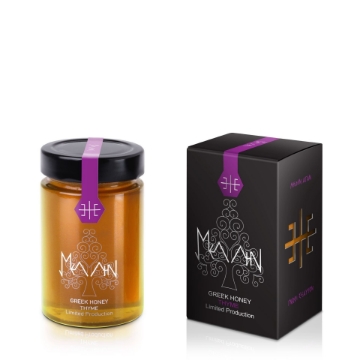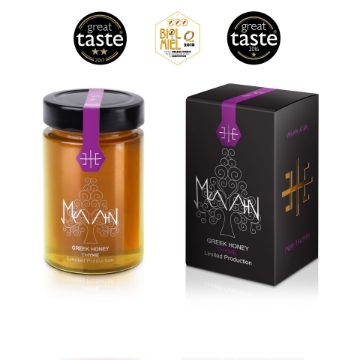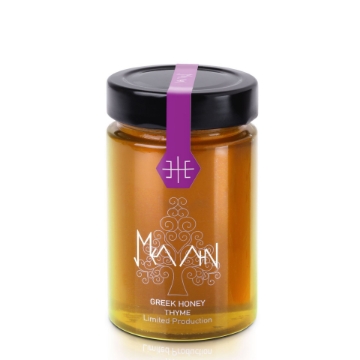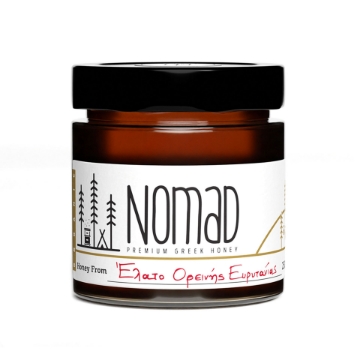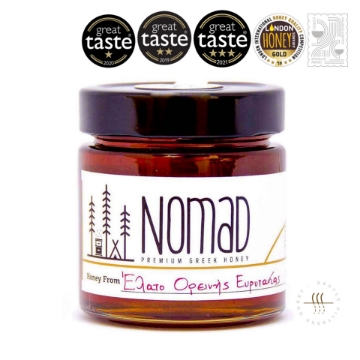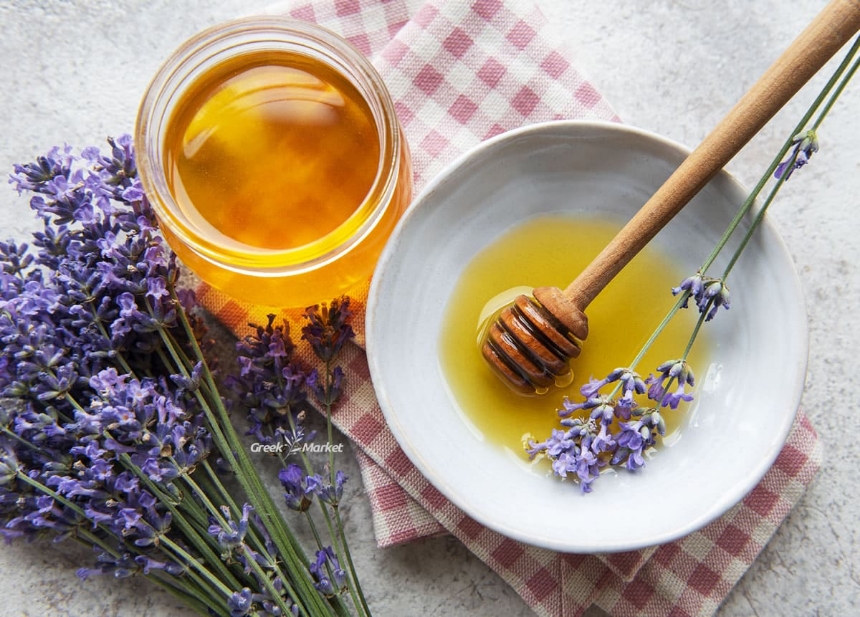
Greek honey is more than just a sweetener; it’s a journey through rich flavors and traditions. With its deep roots in history and its connection to the land, this golden nectar offers a taste of Greece’s vibrant culture. Let’s explore the many layers of Greek honey, from its unique flavors to its health benefits and its role in culinary delights.
Key Takeaways
- Greek honey is celebrated for its diverse flavors shaped by the local flora and climate.
- Raw Greek honey retains its natural enzymes and nutrients, making it a healthy choice.
- This honey has a rich history tied to ancient Greece and mythology, symbolizing luxury and nourishment.
- It can be used in various recipes, adding depth to both sweet and savory dishes.
- Supporting local beekeepers helps preserve traditional practices and the environment.
Embark On A Sensory Journey Through Greek Honey
Greek honey is more than just a sweetener; it's an experience. It's about connecting with nature, tradition, and the unique flavors of Greece. Forget the generic stuff you find in supermarkets; we're talking about honey that tells a story.
The Artistry of Raw Honey
Raw honey is where the magic begins. It's unheated, unpasteurized, and unprocessed, meaning it retains all its natural goodness. Think of it as liquid gold, straight from the hive. The bees work hard to collect nectar, and the beekeepers ensure it reaches you in its purest form. It's a labor of love, and you can taste the difference. It's not just honey; it's artisan honey.
Exploring Unique Flavors
Greek honey isn't one-dimensional. It boasts a diverse range of flavors, depending on the flowers the bees visit. From the rich, earthy notes of thyme honey to the delicate sweetness of fir tree honey, there's a flavor for every palate. It's like a wine tasting, but with honey! You can find health benefits in each variety.
The Role of Terroir in Honey
Just like wine, honey is influenced by terroir – the environment where it's produced. The climate, soil, and flora of Greece all contribute to the unique characteristics of its honey. The rugged mountains, sun-drenched islands, and diverse ecosystems create a perfect environment for bees to thrive and produce exceptional honey.
Imagine the sun beating down on wildflowers, the salty air from the Aegean Sea, and the ancient olive groves dotting the landscape. All of this contributes to the unique flavor profile of Greek honey. It's not just about sweetness; it's about a sense of place.
Here's a simple breakdown of some popular Greek honey varieties:
- Thyme Honey: Strong aroma, rich flavor, amber color. Great for sore throats.
- Fir Honey: Dark color, caramel notes, less sweet. Perfect for drizzling over cheese.
- Pine Honey: Woody aroma, savory flavor, dark color. Pairs well with grilled meats.
A Taste of Elegance in Greek Honey
Luxurious Flavor Profiles
Greek honey isn't just sweet; it's an experience. The flavors are complex, often with hints of wildflowers, herbs, and even subtle notes of pine or citrus, depending on where the bees forage. It's way more interesting than your average honey bear from the grocery store. The texture can range from thick and creamy to light and runny, each type offering a unique sensation on the palate. It's like tasting sunshine and the Greek countryside all at once.
Pairing Honey with Fine Wines
Okay, so you might not think of honey and wine as a natural combo, but trust me, it works. A drizzle of thyme honey over a salty cheese plate, served with a crisp Assyrtiko, is a game-changer. Or try pairing a darker, richer fir honey with a robust red wine. The sweetness of the honey balances the tannins in the wine, creating a really interesting flavor profile. It's all about experimenting and finding what you like. I've found that raw Greek honey complements many wines.
The Experience of Tasting
Tasting Greek honey should be a mindful experience. Don't just slather it on toast (though that's good too!). Take a small spoonful, let it sit on your tongue, and really savor the flavors. Close your eyes and imagine the Greek landscape where the bees collected the nectar. Think about the terroir, the unique combination of soil, climate, and vegetation that gives each honey its distinct character. It's a little moment of luxury in your day.
It's not just about the taste; it's about the story behind the honey. It's about the bees, the beekeepers, and the ancient traditions that have been passed down for generations. It's about connecting with nature and savoring something truly special.
Here's a simple guide to get you started:
- Color: Lighter honeys tend to be milder, while darker honeys are often more intense.
- Aroma: Sniff the honey before you taste it. What scents do you detect? Flowers? Herbs? Earth?
- Texture: Is it smooth, grainy, or crystallized? The texture affects how the honey feels in your mouth.
Nectar of The Gods: Greek Honey's History
Ancient Uses and Beliefs
Greek honey wasn't just a sweetener back in the day; it was seriously valued for its healing properties. Think of it as an ancient medicine cabinet staple. People used it for everything from soothing sore throats to treating wounds. It was believed to have antiseptic qualities, which, turns out, they weren't wrong about! It's pretty cool to think about how something so simple was so important to their health and well-being. The health benefits were widely known.
Cultural Significance in Greece
Honey is way more than just food in Greece; it's woven into the very fabric of their culture. It shows up in all sorts of celebrations and traditions. It's a symbol of prosperity and good luck, often used in wedding ceremonies and other important events. You'll find it drizzled over desserts, stirred into drinks, and even used in religious rituals. It's like a sweet thread connecting the past and present.
- Symbol of prosperity
- Used in wedding ceremonies
- Part of religious rituals
Honey was so important that it was even used as a form of payment or offering to the gods. It was seen as a precious commodity, reflecting the deep respect and appreciation the Greeks had for nature's gifts.
Honey in Mythology
In Greek mythology, honey takes on an almost divine status. Think about it: Mount Olympus, the legendary home of the gods, is often associated with the production of honey. It was considered the food of the gods, bestowing immortality and strength. Stories abound of heroes and deities consuming honey to gain power or heal from injuries. It's a testament to how highly they regarded this golden nectar. It's not just a food; it's a symbol of divine essence.
Pure and Untouched: The Essence of Greek Honey
Health Benefits of Raw Honey
Okay, so raw honey is good for you, right? But Greek raw honey? It's like, next level. It's packed with antioxidants, which are good for fighting off the bad stuff in your body. Plus, it's got antibacterial properties. I've been using it when I have a sore throat, and it seems to help more than those cough drops full of chemicals.
Preservation of Natural Enzymes
One of the cool things about Greek honey is how they keep it real. They don't heat it up a ton or process it like crazy. This means all those good enzymes stay intact. These enzymes help with digestion and all sorts of other body functions. It's like getting the honey straight from the hive, but in a jar. I read somewhere that some honeys lose almost all their enzymes because of processing, which seems like a total waste.
Sourcing and Harvesting Practices
Greek beekeepers are pretty serious about their honey. They usually stick to traditional methods, which means less messing around with the honey and more focus on keeping the bees happy. A lot of them are small, family-run operations, so they really care about the quality. It's not some big factory churning out honey; it's people who are passionate about what they do. Plus, they often move their hives around to different areas, so the bees can get nectar from all sorts of cool plants.
I think it's important to know where your food comes from, and with Greek honey, you're often supporting small businesses and sustainable practices. It just feels good to know you're eating something that's not only delicious but also made with care.
A Culinary Delight with Greek Honey
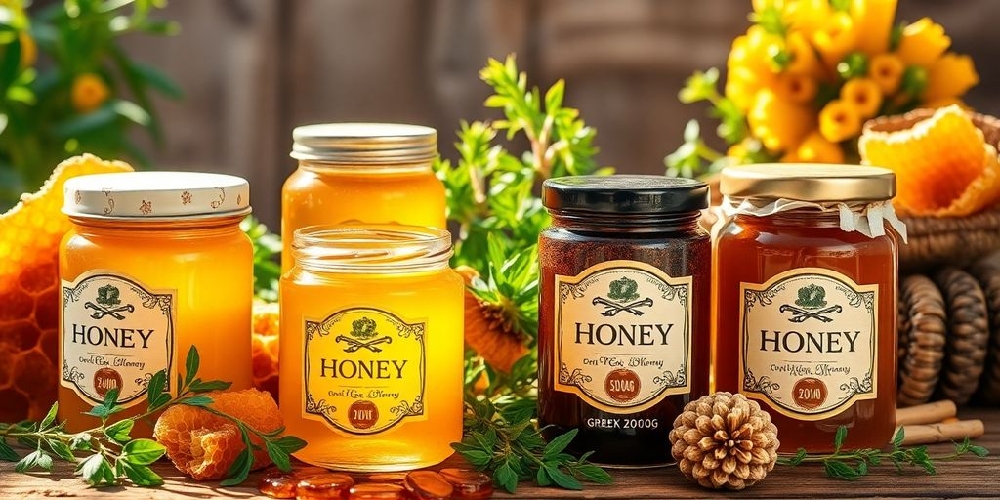
Incorporating Honey in Recipes
Okay, so you've got this amazing Greek honey, right? Don't just drizzle it on toast (although, that's a great start!). Think bigger. I recently tried using it in a marinade for chicken – game changer! The honey caramelizes beautifully in the oven, giving the chicken this incredible sticky glaze. You can also whisk it into salad dressings for a touch of sweetness that balances out the acidity. Seriously, experiment! You can even use it as a natural sweetener in your morning coffee or tea instead of refined sugar. It adds a depth of flavor that you just can't get any other way.
Sweet and Savory Pairings
Greek honey isn't just for desserts, trust me. It pairs surprisingly well with savory dishes. Think about drizzling it over roasted vegetables like carrots or sweet potatoes. The sweetness of the honey complements the earthy flavors of the vegetables perfectly. I even tried it with grilled halloumi cheese once – divine! The saltiness of the cheese combined with the sweetness of the honey was an explosion of flavor in my mouth. Don't be afraid to get creative and try different combinations. You might just discover your new favorite dish.
Elevating Desserts with Honey
Okay, let's talk desserts. Greek honey is a total superstar when it comes to sweet treats. Forget refined sugar – honey is where it's at. I made a batch of baklava last week using Greek honey, and it was the best I've ever had. The honey soaked into the layers of phyllo dough, making it incredibly moist and flavorful. You can also use it to sweeten yogurt, drizzle it over fresh fruit, or even make a simple honey cake. The possibilities are endless! Here are some ideas:
- Honey-drizzled Greek yogurt with walnuts
- Honey cake with lemon zest
- Baklava with pistachios and almonds
Seriously, if you're looking to take your desserts to the next level, Greek honey is your secret weapon. It adds a touch of elegance and sophistication that you just can't get with regular sugar. Plus, it's a healthier alternative, so you can indulge without feeling too guilty.
And if you want to get fancy, try making a honey-lavender ice cream. The floral notes of the lavender pair beautifully with the sweetness of the honey. It's a sophisticated and delicious dessert that's sure to impress your friends and family. Greek honey is a versatile ingredient that can elevate any dessert to new heights.
Beauty Benefits of Greek Honey
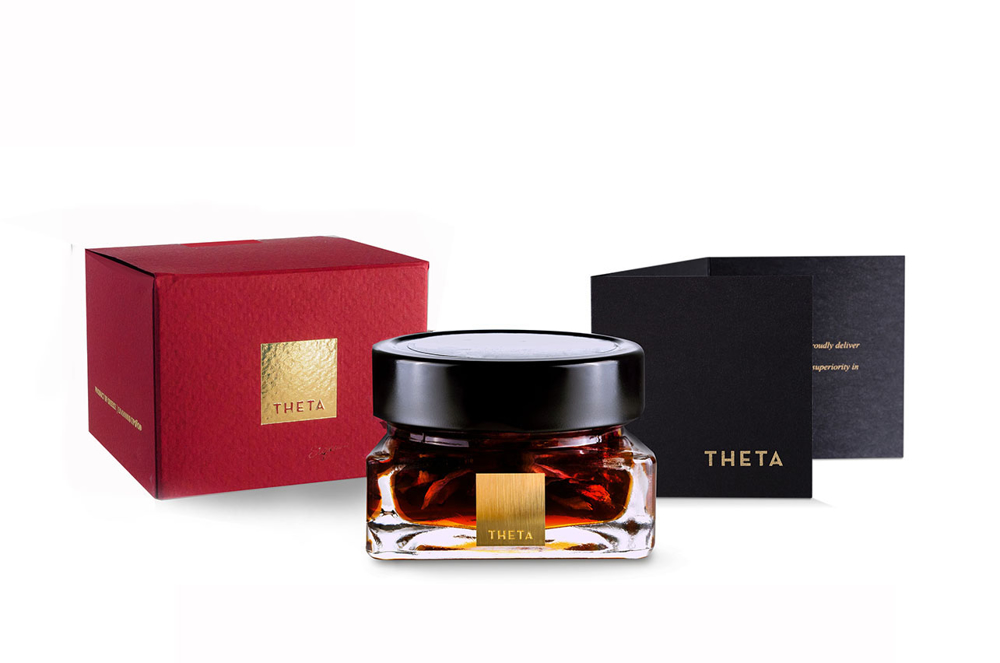
Natural Skincare Applications
Greek honey isn't just for eating; it's a fantastic addition to your skincare routine. Its natural humectant properties help to draw moisture into the skin, leaving it feeling soft and hydrated. I've personally used it as a face mask by applying a thin layer and leaving it on for about 15-20 minutes before rinsing. It's also great for spot treatments on blemishes due to its antibacterial qualities. I've noticed a visible difference in my skin's texture and clarity after just a few uses. You can even mix it with other natural ingredients like yogurt or lemon juice for added benefits. It's a simple, affordable, and effective way to boost your skincare game. I've found that using raw Greek honey is the best way to get the most benefits.
Honey in Hair Care
Did you know honey can do wonders for your hair? It's true! Honey acts as a natural conditioner, helping to smooth the hair shaft and add shine. I like to mix a tablespoon of honey with my regular conditioner for an extra boost of moisture. It's especially helpful if you have dry or damaged hair. Plus, honey's enzymes can help cleanse the scalp and promote healthy hair growth. Here's a simple hair mask recipe I use:
- Mix 2 tablespoons of honey with 1 tablespoon of olive oil.
- Apply to damp hair, focusing on the ends.
- Leave on for 30 minutes, then rinse thoroughly.
I've been using honey in my hair care routine for a few months now, and I've noticed a significant improvement in the overall health and appearance of my hair. It's softer, shinier, and less prone to breakage. Plus, it's a natural and affordable alternative to many commercial hair products.
Nutritional Benefits for Overall Health
Beyond its topical applications, consuming Greek honey offers a range of nutritional benefits that contribute to overall health and beauty. Rich in antioxidants, honey helps combat free radicals, which can damage cells and lead to premature aging. It also contains vitamins and minerals that support healthy skin, hair, and nails. I try to incorporate honey into my diet by adding it to my tea, yogurt, or oatmeal. It's a delicious and nutritious way to support my body from the inside out. Here's a quick look at some of the key nutrients found in honey:
| Nutrient | Benefit |
|---|---|
| Antioxidants | Protects against cell damage |
| Vitamins | Supports healthy skin and hair |
| Minerals | Essential for overall bodily functions |
Sustainable Luxury of Greek Honey
Greek honey isn't just delicious; it's also about making responsible choices. It's about enjoying something special while knowing you're helping the planet and supporting communities. It's a win-win!
Supporting Local Beekeepers
When you choose Greek honey, you're directly supporting small, family-owned businesses. These beekeepers often use traditional methods passed down through generations. Buying their honey helps keep these traditions alive and provides a livelihood for these families. It's a way to connect with the people behind the product and appreciate the care that goes into every jar. You can find premium turmeric golden elixir honey from local beekeepers.
Environmental Impact of Beekeeping
Beekeeping plays a vital role in the ecosystem. Bees are essential pollinators, helping to ensure the growth of many plants, including those that provide us with food. Sustainable beekeeping practices focus on minimizing the impact on the environment. This includes:
- Protecting bee habitats
- Using natural methods to control pests and diseases
- Avoiding the use of harmful chemicals
Ethical Sourcing Practices
Ethical sourcing means ensuring that the honey is produced in a way that is fair to both the bees and the beekeepers. This includes:
- Treating bees with respect and care
- Paying beekeepers a fair price for their honey
- Ensuring that the honey is harvested in a sustainable way
Choosing ethically sourced Greek honey means you're supporting practices that prioritize the well-being of bees and the environment. It's about making a conscious decision to buy products that align with your values. Sustainable beekeeping is key to preserving the environment.
Cultural Heritage Reflected in Greek Honey
Traditions Passed Down Through Generations
Greek honey isn't just a food; it's a link to the past. Beekeeping practices have been carefully maintained, passed from parent to child for centuries. Family recipes using honey are treasured, and the knowledge of where to find the best nectar sources is a closely guarded secret. It's more than a job; it's a way of life.
Honey Festivals in Greece
All over Greece, you'll find local festivals celebrating honey. These aren't just farmers markets; they're community events filled with music, dancing, and, of course, lots of honey tasting. You can meet the beekeepers, learn about different types of honey, and experience the joy of Greek culture firsthand. It's a sweet way to connect with the local community.
Here are some common activities at honey festivals:
- Honey tasting competitions
- Traditional Greek music and dance performances
- Demonstrations of beekeeping techniques
- Sales of local honey and honey-based products
The Craftsmanship of Beekeeping
Beekeeping in Greece is an art. It requires a deep understanding of the land, the bees, and the weather. Greek beekeepers take pride in their work, using traditional methods to produce high-quality honey. They know that the best honey comes from healthy bees and a thriving environment.
The dedication and skill of Greek beekeepers are what make Greek honey so special. They are the guardians of a tradition that has been passed down for generations, and their commitment to quality is evident in every jar of honey.
Wrapping Up the Sweet Journey
So there you have it! Greek honey isn’t just a sweet treat; it’s a whole experience packed with history, culture, and flavor. From its rich taste to its health benefits, every drop tells a story. Whether you’re drizzling it on your morning toast or using it in a fancy recipe, Greek honey brings a little bit of magic to your table. Plus, by choosing this natural delight, you’re supporting sustainable practices that help keep the bees buzzing. So next time you reach for honey, think Greek and savor the sweetness of tradition.
Frequently Asked Questions
What makes Greek honey special?
Greek honey is unique because it comes from diverse flowers and plants, giving it rich flavors and aromas. It is often raw, meaning it hasn't been processed, which helps keep its natural benefits.
How can I use Greek honey in cooking?
You can use Greek honey in many ways! It’s great in recipes for desserts, as a sweetener in tea, or drizzled over yogurt and fruit. It also pairs well with savory dishes.
Are there health benefits to eating Greek honey?
Yes! Greek honey has natural antioxidants and enzymes that can be good for your health. It may help with digestion and boost your immune system.
What is the best way to store Greek honey?
To keep Greek honey fresh, store it in a cool, dry place away from direct sunlight. Make sure the lid is tightly closed to prevent moisture from getting in.
Can I find Greek honey in stores?
Yes, find it online here
Is Greek honey safe for everyone?
Most people can safely enjoy Greek honey. However, children under one year old should not have honey due to the risk of botulism.

